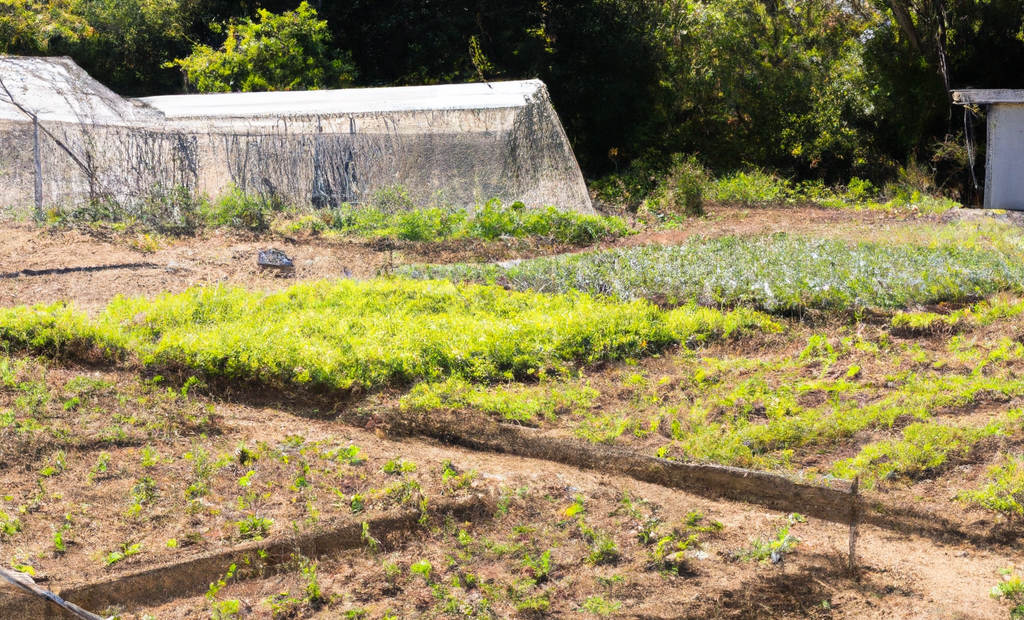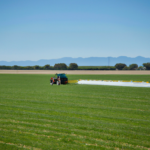The section discusses the use of biofertilizers in organic farming and their role in preventing crop diseases. Biofertilizers, derived from living organisms, improve plant resistance, promote soil biodiversity and are more sustainable and less harmful than chemical fertilizers. These agricultural products not only increase productivity, but also the quality of the final product and the health of the soil. The choice of these fertilizers directly affects the quality of the food we consume. Ecological techniques such as crop rotation, composting and the use of local varieties also contribute to the prevention of crop diseases.
In the modern era of agriculture, crop disease prevention is a constant challenge. However, green and sustainable methods are proving to be a viable and effective approach to address this challenge. This article provides a detailed insight into how green fertilizers, particularly biofertilizers, play a crucial role in preventing crop diseases. We also discuss the importance of agricultural products in protecting crops and how organic farming itself can be an effective solution to prevent crop diseases. With the focus on organic farming, we are not only seeking to produce safer and healthier food, but we are also contributing to a healthier and more sustainable ecosystem.
- 1. "Use of Biofertilizers in Organic Agriculture for Disease Prevention"
- 2. "The Importance of Agricultural Products in the Prevention of Crop Diseases"
- 3. "How Organic Fertilizers Can Help Prevent Crop Diseases"
- 4. "The role of Organic Agriculture in the Prevention of Crop Diseases"
1. "Use of Biofertilizers in Organic Agriculture for Disease Prevention"
The use of biofertilizers in organic farming has proven to be an effective strategy for preventing crop diseases. These fertilizers, obtained from living organisms, offer a more sustainable and less harmful alternative to the environment compared to traditional chemical fertilizers. Biofertilizers provide plants with the essential nutrients they need to grow strong and healthy, thus improving their resistance to diseases and pests. In addition, these agricultural products promote soil biodiversity, creating a more balanced and healthy environment for the development of crops. In summary, the application of biofertilizers in organic farming is a promising practice that contributes to the prevention of crop diseases and the sustainability of our food system.
2. "The Importance of Agricultural Products in the Prevention of Crop Diseases"
The importance of agricultural products in the prevention of crop diseases lies in their ability to strengthen plants and improve soil health, which in turn increases resistance to diseases. Fertilizers, particularly biofertilizers, play a crucial role in this process. These agricultural products not only increase crop productivity but also improve the quality of the final product. Organic farming places special emphasis on the use of these biofertilizers and other natural products for the prevention of diseases. Unlike chemical fertilizers, biofertilizers are safe for the environment and help maintain an ecological balance, which in turn helps prevent diseases in crops. Therefore, the choice of agricultural products has a direct impact on the health of our crops and, ultimately, the quality of the food we consume.
3. "How Organic Fertilizers Can Help Prevent Crop Diseases"
Organic fertilizers play a crucial role in preventing crop diseases and are a fundamental part of organic farming. Unlike chemical fertilizers, organic fertilizers or biofertilizers improve soil health and biodiversity, which in turn strengthens the resistance of crops to diseases. These agricultural products are packed with essential nutrients and beneficial microorganisms that improve soil structure, improve water and nutrient retention, and promote the growth of beneficial microorganisms that suppress plant pathogens. Additionally, organic fertilizers do not contain harmful chemicals that can accumulate in the soil and cause long-term health problems in crops. Therefore, the use of ecological fertilizers not only contributes to a sustainable and environmentally friendly agricultural system, but is also an effective strategy to prevent crop diseases.
4. "The role of Organic Agriculture in the Prevention of Crop Diseases"
Organic farming plays a crucial role in preventing crop diseases. The use of chemical fertilizers can damage the ecosystem and make plants more susceptible to diseases. In contrast, organic farming promotes the use of biofertilizers, agricultural products that are natural and do not harm the environment. Biofertilizers strengthen the health of plants, improving their resistance to diseases and reducing the need for chemical pesticides. Additionally, organic farming techniques such as crop rotation, composting, and using local varieties help maintain healthy soil and prevent the spread of diseases. Therefore, organic farming is not only beneficial for the environment, but can also be an effective strategy to prevent crop diseases.
Preventing crop diseases is a vital component in organic farming. This article has emphasized the importance of using biofertilizers and other agricultural products in preventing crop diseases. Applying these eco-friendly techniques not only helps prevent diseases, but also boosts overall soil health and improves the quality of agricultural products. In summary, integrating green fertilizers into agricultural practices is an effective and sustainable approach to crop disease prevention. This is a win-win strategy for farmers, consumers and the environment, making it an essential part of modern organic farming.


